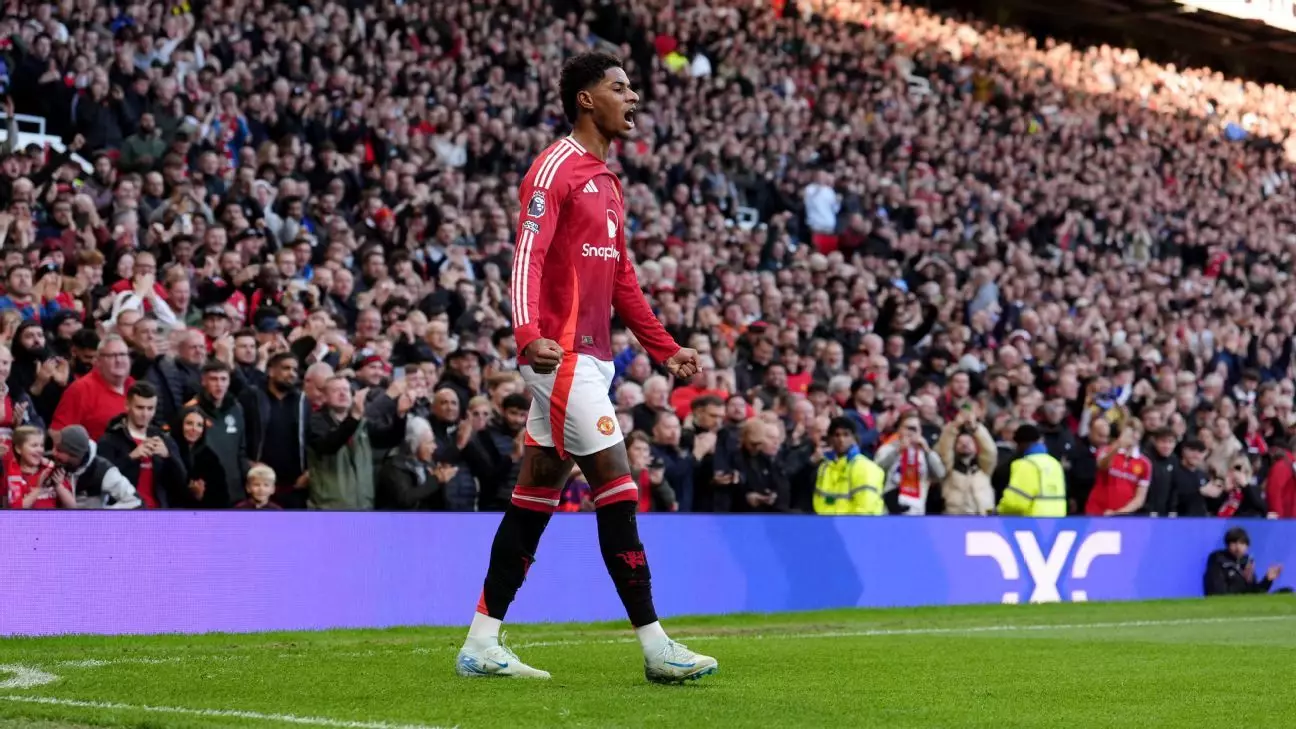The relationship between Marcus Rashford and Manchester United is currently tangled in uncertainty and challenges as the team navigates through a season marked by disappointment and organizational changes. Ruben Amorim, the recently appointed head coach, is now at the helm, enjoying a relative autonomy regarding player management, particularly with Rashford, a star whose performance on the pitch has declined and who has found himself relegated to the sidelines in recent matches.
Ruben Amorim’s capacity to make decisive choices without interference from the club’s hierarchy, including co-owner Sir Jim Ratcliffe and technical director Jason Wilcox, highlights a progressive management style. This hands-off approach allows Amorim the liberty to work through the pressing situation with Rashford, who has not featured in the squad for the last three games, including a disheartening 3-0 loss to Bournemouth. Such autonomy could ultimately be beneficial for both the coach and the player, or it could leave room for unresolved issues that may fester.
For Amorim, the connection with Rashford remains essential. His acknowledgment of Rashford’s comments about seeking a “new challenge” indicates a sympathetic understanding of the player’s frustrations. In an environment where player performance and morale directly contribute to a team’s success, it is crucial for Amorim to balance accountability with compassion, ensuring that Rashford feels supported while also recognizing the need for improvement in his game.
The Financial Implications of Rashford’s Situation
The financial dynamics surrounding Rashford’s situation cannot be overlooked. As one of Manchester United’s highest earners, with a weekly wage exceeding £325,000, Rashford’s potential exit would carry significant implications for the club. Although he is under contract until 2028, suggesting that United holds leverage, the reality of market demands and player valuations could complicate matters as the January transfer window approaches. With the current season showing a decline in form for Rashford, discussions of possible offers or trades loom ominously—while his absence may jeopardize United’s negotiating power, it simultaneously raises questions about the club’s long-term strategy regarding player salaries and squad composition.
Despite his dip in performance, Rashford’s value remains evident, especially considering he is still regarded as United’s biggest star. The knee-jerk reaction that might lead to dismissing offers for the player highlights a broader strategy regarding retaining talent versus making strategic financial decisions that align with the team’s overarching goals.
Rashford’s public pronouncement of a desire for a “new challenge” following his exclusion from the squad against Manchester City illustrates a notable pressure point within the organization. Public statements made by players can complicate internal dynamics, and Amorim’s responses reflect a level of frustration that the situation may have spiraled beyond the straightforward confines of performance.
The idea that Rashford has external influences shaping his decision-making is a pertinent topic, as Amorim suggests that “these players have a lot of people around them.” This insight raises questions about how athletes manage their professional narratives in combination with external pressures. As Rashford has articulated his aspirations, Amorim remains task-focused, emphasizing performance and offering support. The persistent ambiguity surrounding Rashford’s future will demand diligence—not only in the technical aspects of his gameplay but in navigating the player’s complex psychological landscape.
As United proceeds through this inflection point, the reconciliation of Rashford’s ambition with Amorim’s coaching philosophy is paramount. Engaging in constructive dialogue and establishing performance benchmarks should be prioritized if both parties are to find common ground. Amorim has stated that he aims to “improve” Rashford, a sentiment that reflects the broader need for growth and development in the context of team cohesion.
By integrating Rashford back into the fold at the right moment, Amorim can capitalize on the player’s intrinsic talents while also addressing the external narratives that weigh heavily on the club. Ultimately, navigating this intricate web of player agency, financial considerations, and performance management will define not only Rashford’s trajectory but potentially the very future of Manchester United under incoming leadership.

